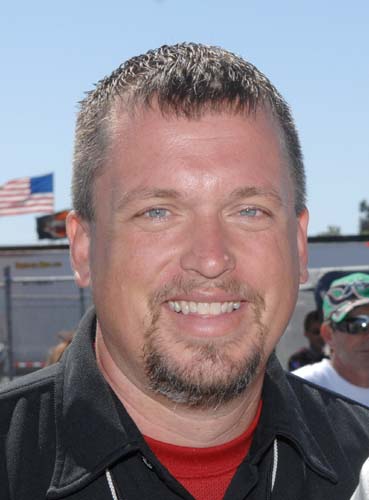BOBBY BENNETT: THE TITANIC DIDN'T ADJUST AND SEE WHAT HAPPENED ...
 Will the NHRA avoid the icebergs which threaten to sink the ship?
Will the NHRA avoid the icebergs which threaten to sink the ship?
The Titanic was a grand ship, built to the nines and more than ready to conquer the rough waters of the Atlantic Ocean. Even Captain John Edward Smith was alleged to have proclaimed, "Even God himself couldn't sink the Titanic."
While history confirms the Titanic ignored at least 30 warnings as it steamed from Ireland en route to the United States, one must wonder if NHRA executives will do the same.
In many ways, the big stage of professional drag racing, the National Hot Rod Association carries the same traits of flamboyancy [not bouyancy] as the Titanic. The NHRA's history alone is something of a marvel.
The same could be said for its upper echelon race teams as they share equally in the success of the Mello Yello Drag Racing Series. Simply put, the two exist because of one another.
Should someone fail to step forward to take note of the icy conditions ahead, the sport, as known, could take a hit. A significant hit. A sinking hit.
Our plea is no "chicken little, the sky is falling" reaction to existing events. This is common sense, which should tell everyone adjustments need to be made until the landscape improves. In other words NHRA, get out of the icy waters.
Now it may seem as if I am calling out the NHRA, or some might say, picking on them. I am not. Simply put, NHRA is the leader of professional drag racing.
While it may be too late to change the coming season, all certainly can look ahead to 2016.
While each of us has various opinions, the overwhelming consensus is there is an overwhelming need to reduce expense and increase profit.
No one should fault the NHRA for making money, because if the series doesn’t prosper, it’s game over … period. However, if the NHRA is making money and the majority of the teams are struggling to break even, there is a problem which must be cured.
However, if NHRA is making money and the majority of teams are struggling to break even, there is a problem which must be cured.
Many suggest the NHRA should first address an oversaturating 24-race schedule. There was a day when NHRA needed to try and keep pace with NASCAR in the battle for the motorsports entertainment dollar. In looking at today's economic landscape, the oval track series is certainly facing challenges. Maybe it's time to chart a course of its own.
There's a groundswell of support for the NHRA to pare the series down, maybe a 16 to 18 race series. Time would tell if the reduction of events provided a more profitable life in drag racing.
By their actions, both NASCAR, and NHRA proved their respective schedules were battling for exposure against the NFL and NBA, by instituting a "playoff" series to maintain excitement. And in their defense, the format has worked. Could it be having too many races created this need for excitement?
Many believe it is just as expensive to run an 18-race schedule as a 24-event one. I'm not buying it. I know what it costs us to cover 18 races as opposed to 24.
When one brings up the suggestion of less races, both series officials and racers often counter with the argument of less sponsorship money. True, but this shouldn't affect the amount per race of a sponsorship. And, in the big picture, fewer races could make the per race importance improve greatly thus creating the potential to increase the per race investment for those sponsorships.
There are other issues.
In case it's not evident, the race payouts, as opposed to the investment, are way out of whack. If we want to be real about this issue, the racers are just as much at fault as the series managers.
There are procedures the NHRA could have instituted along the way to curtail spending in the name of winning.
Let's be clear, I'm not in favor of a socialistic racing series. I would like to think there are successful businessmen and drag racers who greatly question the logic of three times the amount of money in investment to what they could win. Those who have simply seen the light no longer race or do so on their money in a reduced manner.
When legends such as Don Prudhomme, Kenny Bernstein and most recently John Force couldn't move the needle of Corporate America, then we have a problem. We cannot cite the age thing of these team owners because all employed young and very marketable drivers.
Have the racing community and the promoters of big league professional drag racing ever wondered what would happen if today’s big wheels Don Schumacher, Connie Kalitta and more recently Bob Vandergriff Jr. decided to downsize or quit? It's a very real possibility.
Beyond this, what do we need to do to make our series more favorable to the auto manufacturers? Pro Stock and to a point Super Stock used to operate on the platform of "Win on Sunday, Sell on Monday.” Sadly, Bob Tasca Sr.’s, the grandfather not the driver, catchy phrase is no longer applicable. And, maybe this is just a sign of the times and not racing related at all.
And, while the doom and gloom might appear to be on the NHRA, the drag racers should share the blame as well. If you raise
the bar so high the average racer cannot even compete or attend, what good does this do in the end?
You might be king of the hill today, tomorrow and the day after. What if there's no one to challenge you, but your own team, is this really what the sport is about?
There are some positives in drag racing and on the NHRA Mello Yello Drag Racing Series. It's an awesome way to spend the day, and the natural positives still make it one of the greatest sports in the world.
This doesn't mean we shouldn't adjust for the current climate.
Now it's not my place to say what race should go and which should stay. This is a tough decision the NHRA has to make based on the real numbers and the value to their participants. We've heard the markets argument, but I liken these to the age-old horsepower challenge. You can have all the power in the world but if you can't put it on the track, what good does it serve?
The same can be said for markets. They might be big but if they don't deliver for the whole community what good does it do? Maybe NHRA could consider alternating markets? Or, maybe one race per track?
Fewer races, cost containment and creating more per race value are three key issues the NHRA and drag racing's professional leaders face and had better take seriously. NHRA had better realize in the coming years they might not be the only game in town.
Just sayin' ...
Anyone notice the moves the IHRA and PDRA have made lately?
Given the opportunity for a do-over, think Captain John Edward Smith might have made a course adjustment?
Follow Bobby Bennett on Twitter





































